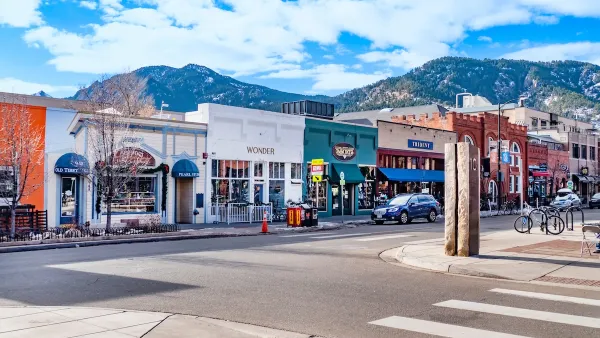According to this op-ed, allowing cities to de-densify undermines the importance of the city's role in society at large--namely, as a breeding ground for technological and cultural innovation.
"The Obama administration is reportedly considering backing a radical plan to shrink deteriorating American cities by bulldozing entire neighborhoods and returning the land to nature. The idea, which originated in Flint, Mich. -- cratered by the auto industry implosion -- is to persuade disintegrating and depopulated cities to embrace their shrinkage, destroy abandoned infrastructure, save money and thereby stave off fiscal ruin.
The plan makes sense on some level, but it's disturbing on another. Anyone who's driven by miles of empty lots in Detroit knows that urban demolition does more than destroy blight. It also erases history and what a city was. Traces of the past have always been jumping-off places for the next chapter (think rehabbed Victorians or sleek post-industrial lofts). And, of course, the back-to-nature plan -- which could be used in cities such as Memphis, Baltimore, Philadelphia and others -- is fundamentally an admission and may be an assurance that these cities will never rise again."
FULL STORY: Bulldozing our cities may wreck our future

Planetizen Federal Action Tracker
A weekly monitor of how Trump’s orders and actions are impacting planners and planning in America.

Chicago’s Ghost Rails
Just beneath the surface of the modern city lie the remnants of its expansive early 20th-century streetcar system.

San Antonio and Austin are Fusing Into one Massive Megaregion
The region spanning the two central Texas cities is growing fast, posing challenges for local infrastructure and water supplies.

Since Zion's Shuttles Went Electric “The Smog is Gone”
Visitors to Zion National Park can enjoy the canyon via the nation’s first fully electric park shuttle system.

Trump Distributing DOT Safety Funds at 1/10 Rate of Biden
Funds for Safe Streets and other transportation safety and equity programs are being held up by administrative reviews and conflicts with the Trump administration’s priorities.

German Cities Subsidize Taxis for Women Amid Wave of Violence
Free or low-cost taxi rides can help women navigate cities more safely, but critics say the programs don't address the root causes of violence against women.
Urban Design for Planners 1: Software Tools
This six-course series explores essential urban design concepts using open source software and equips planners with the tools they need to participate fully in the urban design process.
Planning for Universal Design
Learn the tools for implementing Universal Design in planning regulations.
planning NEXT
Appalachian Highlands Housing Partners
Mpact (founded as Rail~Volution)
City of Camden Redevelopment Agency
City of Astoria
City of Portland
City of Laramie




























